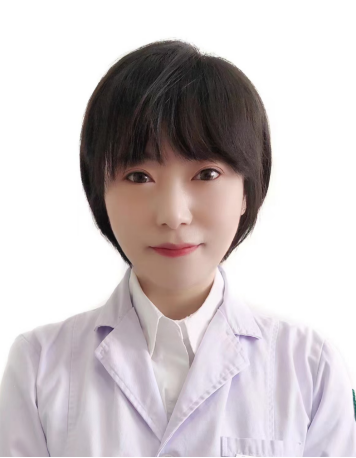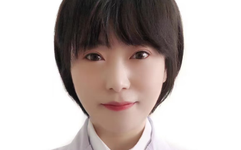Click the blue text to follow us
Breast cancer has the highest incidence rate among malignant tumors in women, and its incidence is on the rise year by year. Currently, the treatment of breast cancer has formed a multidisciplinary treatment model mainly consisting of surgery, radiotherapy, chemotherapy, molecular targeted therapy, and endocrine therapy. Although various treatment methods can effectively remove tumor lesions and prolong patient survival, they also produce certain toxic side effects.
Traditional Chinese Medicine (TCM) is based on a holistic approach and syndrome differentiation treatment. By adjusting the body’s qi and blood, yin and yang, and the functions of the organs and meridians, TCM improves material metabolism, enhances immune function, and increases disease resistance, thereby reducing postoperative complications, alleviating adverse reactions caused by radiotherapy, chemotherapy, and endocrine therapy, lowering the recurrence and metastasis of tumors, and improving patients’ survival rates and quality of life.
Breast cancer has been recorded in ancient TCM literature, commonly referred to as “ruyan” (乳岩), “rushiying” (乳石痈), “naiyan” (奶岩), “shiliufanhuafa” (石榴翻花发), and “shina” (石奶), with “ruyan” being the most common and still in use today. The causes of breast cancer, like other diseases, include emotional distress, improper diet, imbalance of work and rest, and congenital factors. The fundamental pathogenesis is deficiency of the righteous qi (正气, zheng qi). The deficiency of righteous qi, combined with qi stagnation, phlegm dampness, blood stasis, and heat toxin, leads to qi stagnation, phlegm accumulation, blood stasis, and evil toxins accumulating in the breast, forming lumps. Breast cancer is generally classified as a condition of deficiency with excess signs, primarily involving the liver, spleen, and kidney, with the manifestation in the breast and the underlying issues in the liver, spleen, and kidney.
Postoperative patients with breast cancer experience the most severe damage to their righteous qi, leading to the accumulation of phlegm, dampness, stasis, and toxic evils in the body. It is uncertain whether the accumulated toxic evils can cause disease again, so the main factors in the development of breast cancer after surgery are the weakness of righteous qi and the accumulation of pathogenic evils. Ancient literature records that as long as the righteous qi is sufficient, even if evil qi invades, it is difficult for disease to occur; the places where evil qi invades are always those where righteous qi is insufficient, which profoundly reveals the essence of disease occurrence.
Therefore, during this period of severe deficiency of righteous qi after surgery, it is crucial to focus on supporting the righteous qi. However, residual evils remain, and pathological products continue to be produced. If the evils are not expelled, the righteous qi cannot be restored, so it is necessary to differentiate the nature of the evils and eliminate them in a timely manner to achieve the initial goal. Only by skillfully combining the support of the righteous and the expulsion of the evil can the best treatment effect be achieved. For patients with breast cancer after surgery, TCM often prioritizes supporting the righteous qi, commonly using herbs that tonify the spleen and qi such as Dang Shen (党参, Codonopsis), Fu Ling (茯苓, Poria), Bai Zhu (白术, Atractylodes), and Huang Qi (黄芪, Astragalus), blood tonics like Dang Gui (当归, Angelica) and Bai Shao (白芍, White Peony), and kidney tonics such as Gou Qi Zi (枸杞子, Goji Berries), Nu Zhen Zi (女贞子, Ligustrum), Xian Ling Pi (仙灵脾, Gynostemma), Shan Zhu Yu (山茱萸, Cornus), and Rou Cong Rong (肉苁蓉, Cistanche). Then, expelling evils is used as an adjunct, commonly employing detoxifying herbs such as Bai Hua She She Cao (白花蛇舌草, Hedyotis), Xia Ku Cao (夏枯草, Prunella), Shan Ci Gu (山慈菇, Rhizoma), Ban Zhi Lian (半枝莲, Scutellaria), Long Kui (龙葵, Solanum), Feng Fang (蜂房, Honeycomb), and Pu Gong Ying (蒲公英, Dandelion).
1. Preserve Stomach Qi, Gain Vitality. The “Jing Yue Quan Shu” states, “Earth qi is the source of all things, and stomach qi is the king of health preservation. If the stomach is strong, one is strong; if the stomach is weak, one is weak. With the stomach, there is life; without the stomach, there is death. Therefore, health preservers must prioritize the spleen and stomach.” Cancer patients often experience anxiety and pessimism, which harms the spleen. Emotional depression harms the liver, leading to liver qi stagnation, which in turn affects the stomach and harms the spleen. Surgical damage to qi and blood reduces the spleen and stomach’s ability to transform and transport, while radiotherapy’s heat and toxins deplete qi and fluids, damaging stomach qi and yin. Chemotherapy drugs are often highly toxic, driving out evils but also harming the righteous qi, making them particularly damaging to the spleen and stomach. Therefore, in cancer treatment, the spleen and stomach should be prioritized, and attention must be given throughout the treatment process.
In clinical practice, the commonly used Si Jun Zi Tang (四君子汤, Four Gentlemen Decoction) is often supplemented with Shan Yao (山药, Dioscorea) and Ji Nei Jin (鸡内金, Chicken Gizzard Lining) to strengthen the spleen and nourish the stomach, along with fried Hawthorn (炒山楂), fried barley (炒谷), Mai Ya (麦芽, Barley Sprout), and Shen Qu (神曲, Fermented Grain) to aid digestion and strengthen the stomach. Yi Yi Ren (薏苡仁, Coix Seed), Chen Pi (陈皮, Aged Tangerine Peel), Hou Po (厚朴, Magnolia Bark), and Su Geng (苏梗, Perilla Stem) are used to resolve dampness, regulate qi, and harmonize the stomach. For those with stomach qi rebelling and acid reflux, add Duan Wa Leng Zi (煅瓦楞子), and for those experiencing burning sensations in the stomach and nausea, add Jiang Ban Xia (姜半夏, Pinellia) and Zhu Ru (竹茹, Bamboo Shavings), fried Huang Qin (炒黄芩, Scutellaria), Shi Hu (石斛, Dendrobium), and Lu Gen (芦根, Reed Root). For those who fear cold and experience vomiting of clear fluids, add Ding Xiang (丁香, Clove) and Shi Di (柿蒂, Persimmon Calyx).
2. Clear Evil Toxins, Anti-Tumor. Heat toxins are significant pathogenic factors for tumors. Commonly used herbs in clinical practice include San Ye Qing (三叶青, Trillium), Nan Fang Hong Dou Shu (南方红豆杉, Taxus), Jin Qiao Mai (金荞麦, Fagopyrum), and Zhong Lou (重楼, Paris).
San Ye Qing, also known as Jin Xian Diao Hu Lu (金线吊葫芦, Gold Thread Gourd) and She Fu Zi (蛇附子, Snake Gourd), has a slightly bitter and neutral flavor, with effects of clearing heat and detoxifying, activating blood and relieving pain, and dispelling wind and resolving phlegm. Researchers have found that the flavonoids and other extracts in San Ye Qing can effectively inhibit the growth of various cancer cells and induce apoptosis.
Taxus is a general term for plants in the Taxaceae family, with a bitter and neutral flavor and slight toxicity. It can reduce swelling and dissipate masses, primarily treating tumors, rheumatism, kidney diseases, etc. It is recognized worldwide as a rare and endangered natural anti-cancer plant. Its extract, paclitaxel, exerts anti-tumor effects by promoting microtubule protein polymerization, inhibiting depolymerization, maintaining microtubule stability, inhibiting cell mitosis, and promoting tumor cell apoptosis. Studies have found that paclitaxel has a broad regulatory effect on immune cells, including effector T cells, dendritic cells, natural killer cells, regulatory T cells, and macrophages, thereby reversing tumor immune evasion.
Jin Qiao Mai is a plant in the Polygonaceae family, with a cool nature and a spicy, bitter taste. It has effects of clearing heat and detoxifying, activating blood and resolving stasis, and benefiting the spleen and promoting urination. Its rhizome extracts have anti-tumor activity, mainly by directly inhibiting tumor cell growth, suppressing tumor cell invasion and metastasis, inducing apoptosis, inhibiting tumor angiogenesis, and enhancing the body’s immunity.
Zhong Lou, also known as Qi Ye Yi Zhi Hua (七叶一枝花, Seven Leaf One Branch Flower) and Zao Xiu (蚤休, Paris), has a bitter and cold flavor with slight toxicity. It has effects of clearing heat and detoxifying, cooling the liver and calming the mind, and reducing swelling and relieving pain. It is widely used in antibacterial, anti-tumor, sedative, analgesic, and cough-relieving treatments. Modern research has confirmed that Zhong Lou has a certain inhibitory effect on various solid tumors, including breast cancer, lung cancer, liver cancer, gastric cancer, rectal cancer, kidney cancer, pancreatic cancer, prostate cancer, and cervical cancer.
The main effective component of Zhong Lou in anti-tumor treatment is the total saponins of Zhong Lou, which induce tumor cell apoptosis by blocking the tumor cell proliferation cycle, affecting apoptosis signaling pathways, and influencing the expression of oncogenes and tumor suppressor genes, thereby inhibiting tumor cell proliferation and neovascularization, suppressing tumor growth and metastasis, and regulating the body’s immune function while selectively acting on drug-resistant tumor cells.
Pay Attention to Lifestyle Adjustments:
1. TCM believes that the causes of breast cancer include internal injuries from the seven emotions, namely “joy, anger, worry, thought, sadness, fear, and shock.” Excessive and prolonged intensity of these emotions exceeds the body’s physiological and psychological adaptability, leading to dysfunction of the organs and qi and blood. The occurrence of breast cancer is closely related to emotional factors. The “Yi Xue Zheng Zhuan” states, “Ruyan often occurs in women who are depressed and harbor resentment.” In clinical treatment, it is essential to pay attention to changes in the patient’s mental and emotional state, alleviating the patient’s fears and anxieties by informing them about the treatment plan, potential side effects, and possible complications, thereby establishing trust and confidence in treatment.
2. Encourage patients to engage in moderate exercise based on their personality and preferences, such as practicing qigong, yoga, tai chi, listening to music, practicing calligraphy, painting, and redirecting pessimistic emotions to relieve chest congestion and cultivate their temperament, making life more fulfilling.
3. Maintain a proper diet, avoiding foods containing estrogen, high-fat diets, fried foods, animal fats, organ meats, high-sugar diets, smoking, alcohol, foods with additives, pickled foods, and moldy foods. A fresh and light diet is recommended, with a balance of coarse and fine grains, consumption of vegetables and fruits, and maintaining smooth bowel movements. A reasonable diet and a relaxed mood help improve the patient’s quality of life and prolong survival.
Expert Introduction

Sun Chao
Department of Oncology and Hematology, Fushun Traditional Chinese Medicine Hospital
Deputy Chief TCM Physician, Master’s Degree Graduate
Graduated from Liaoning University of Traditional Chinese Medicine in 2013 and has been engaged in oncology work since graduation. He specializes in the integrated treatment of lung cancer, breast cancer, and various solid tumors, adept at using TCM therapies to comprehensively treat cancer-related syndromes and improve adverse reactions caused by radiotherapy, chemotherapy, targeted therapy, and immunotherapy, enhancing clinical symptoms in advanced cancer patients. He is skilled in procedures such as closed drainage of the thoracic and abdominal cavities, pericardial puncture, and bone marrow puncture, diagnosing and improving patient symptoms. He has conducted research on anemia, leukemia, aplastic anemia, and malignant lymphoma.
-
Currently serves as a member of the Oncology Professional Committee of the Liaoning Association of Integrated Traditional Chinese and Western Medicine;
-
Member of the Lymphatic Edema Comprehensive Treatment Professional Committee of the Liaoning Association of Traditional Chinese Medicine;
-
Member of the Fifth Oncology Professional Committee of the Liaoning Association of Traditional Chinese Medicine;
-
Member of the Hematology Professional Committee of the Liaoning Association of Traditional Chinese Medicine;
-
Member of the Fushun Medical Oncology Specialty Committee.

